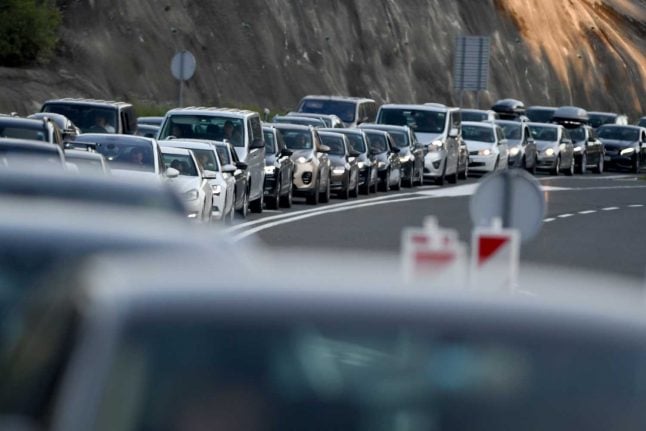2021 will bring with it a raft of new changes – with many of those applying behind the wheel and on the road.
Speed limits
The Austrian Board of Trustees for Road Safety has outlined a package of stricter fines for speeding.
The penalty for illegal street racing is expected to rise from 2,180 to 5,000 euros.
The amount you can be over the speed limit before having your driver’s licence revoked has been reduced.
Now, you can have your licence revoked for two weeks by driving 30km/h over the limit in cities – and by 40km/h over the limit in rural areas.
In addition, you can have your licence revoked for four weeks by driving 40km/h over the limit in cities – and by 50km/h over the limit in rural areas.
Stricter penalties are planned for repeat offenders, while vehicles can be confiscated for several offences.
This includes speeding under dangerous conditions, repeated dangerous speeding, driving after your licence has been revoked for speeding or for speeding without a drivers licence.
There will also be potential jail time for anyone engaging in illegal street racing.
Digital drivers licence
At a time when pretty much everything is done via phone, it is perhaps no surprise that drivers licences are also going on your phone.
From Spring 2021, you will be allowed to carry your drivers licence as a digital file stored on your mobile phone.
More rules for ride share drivers
From January 1st, 2021, the rules that apply to taxi drivers will apply to all paid passenger services in Austria – i.e. ride sharing companies like Uber.
Under the Occasional Traffic Act, from 2021, all Uber drivers will be required to display an official ID, which can only be acquired by completing a number of training requirements.
In addition, there will be a blood alcohol limit for ride share drivers of 0.1g per litre.
The IDs will be valid for five years under the plan.
Changes to consumption tax for cars and motorcycles
From January 2021 – and then again from July 2021 – a number of technical changes will come into effect regarding the calculation of consumption taxes for motorcycles and cars.
These are a little too technical and specific to go into here, but are described in depth at the following link.
Vignette costs change for 2021
The 2021 annual vignette stickers will be available for purchase from the end of November 2020.
These will cost 92.50 euros per year – an increase of around 1.5 percent on the cost of last year's stickers – and will be apple green in colour.
For anyone looking to save a bit of cash – and who will be sticking around in Austria for a year at least – the annual price is by far the cheapest.
By purchasing a year-long vignette, you'll save yourself more than 20 euros.
EXPLAINED: What you need to know about Austria's vignette motorway toll stickers
New tariffs 2021 for cars: ten-day vignette: 9.50 euros, 2-month vignette 27.80 euros, Annual vignette: 92.50 euros
New tariffs 2021 for motorcycles: ten-day vignette 5.50 euros, 2-month vignette 13.90 euros, annual vignette: 36.70 euros.
Commuter allowance
Up until this point, Austria’s commuter allowance has only been available for drivers – removing an incentive for people to switch to cycling.
That will change from 2021, with cyclists now eligible for Austria’s commuter allowance.
Drone rules
Drones have remained largely unregulated in Austria despite improvements in technology making them cheaper and more mobile.
From 2021, new rules will come into effect to govern drones and the way they are used.
From January 1st, anyone wanting to use a drone will need to complete a registration process, which includes an online course.
Drones will also receive a unique number which must be displayed on the drone in order to improve traceability.
More information on the registration process and how much it costs is available here.



 Please whitelist us to continue reading.
Please whitelist us to continue reading.
Member comments